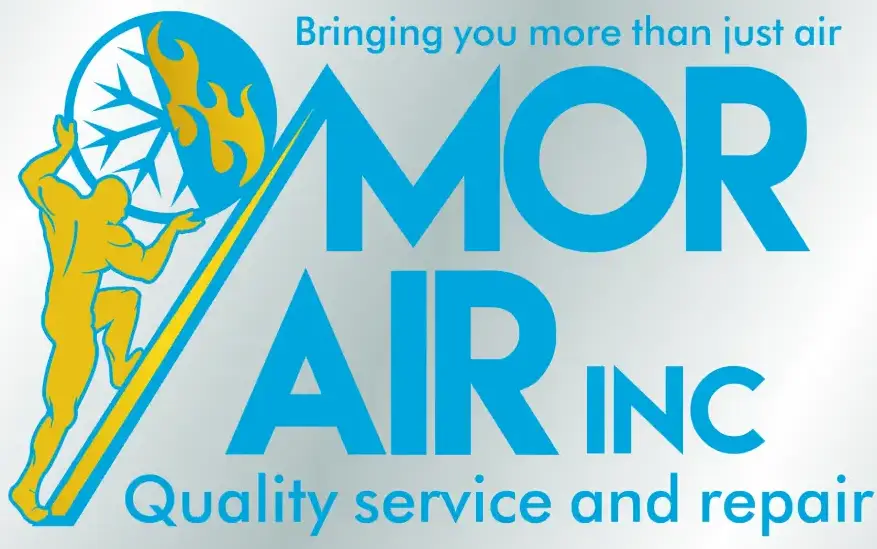HVAC is an acronym that stands for heating, ventilation, and air conditioning. It is a system used to control the interior environment of buildings for comfort by regulating the temperature, humidity levels, and quality of outdoor air. The terms building automation system (BAS) or “building controls” are now more frequently being used in place of HVAC to describe the central air conditioner, heat pump, and ventilation system that is controlled by a building’s overall HVAC strategy.
The heating and cooling system in a home or business works in conjunction with its structure and various air systems to provide clean air throughout the facility. For an HVAC unit to function properly and efficiently, the system and building must be designed and installed according to national standards.
HVAC is an important part of any household or business that works to provide a stable climate for its occupants. This process ensures that the units in place are working correctly and doing their job efficiently. It can help people save money on heating bills by being more energy-efficient, as well as save money on air conditioning bills by maintaining a comfortable temperature.
There are many components within a system that work together to provide high levels of comfort. These units include the compressor, condenser, evaporator, expansion device, refrigerant controls, and metering devices.
What Do HVAC Contractors Do?
An HVAC contractor is a professional who specializes in installing, maintaining, and repairing heating and cooling systems. A contractor can choose to specialize in one of three different areas: residential, commercial, or industrial.
Residential HVAC contractors work with homeowners to install and maintain furnaces, air conditioners, heat pumps, and mini-split systems. These contractors also monitor the home’s ductwork to make sure it is ventilating properly.
Commercial HVAC contractors provide maintenance, cleaning, replacement parts, installation services, and consultation for commercial buildings that utilize heating or cooling systems. They are responsible for installing environmental control equipment in office buildings, schools, churches, restaurants, and retail stores. A commercial HVAC contractor also provides 24-hour emergency services for any of the aforementioned systems.
Industrial HVAC contractors install systems in food processing plants, warehouses, machine shops, and manufacturing facilities. These systems need to be designed specifically for these types of environments and the equipment that is used in them.
Finding Trusted HVAC Companies
When an HVAC system is not functioning at its optimal level, it can become dangerous for the people in a home or office. This is why it’s important to find trusted contractors to install and maintain heating or cooling equipment so that everything runs smoothly.
There are many components within an HVAC unit that work together to keep buildings cool or warm. Poorly maintained equipment can disrupt the system and lead to an uncomfortable environment, which is why it’s important to employ a reliable contractor who understands how all of these parts work together.
HVAC systems help keep homes or offices comfortable by providing insulation from extreme temperatures inside or out. They are complex systems that function best when they are installed correctly, maintained regularly, and serviced when necessary.
An HVAC contractor can be found by searching online for local professionals or by inquiring with neighbors about who they use to service their home’s furnace, central air conditioning unit, or heat pumps. It’s also possible that an HVAC contractor may be affiliated with a company that already provides a service to a home or office.
What Is The Purpose of HVAC?
HVAC is what helps keep occupants of a home or office comfortable by controlling the temperature and humidity within the building. It does this by taking in air from outside and passing it through coils that contain refrigerant, which absorbs heat from the air before circulating it throughout a structure.
How Does HVAC Work?
HVAC works by taking air in from the outside and forcing it through ducts into buildings. It then cools the air before sending it throughout a structure to maintain an appropriate temperature. For this process to function correctly, ductwork must be installed correctly and efficiently.
HVAC works on the process of exchanging heat between objects, or conduction. A fan blows air into the system and is heated by a heating coil within the furnace. This term is referred to as sensible heat exchange because it changes the state of matter and changes how we sense the air around us. The air then travels through ductwork and into a home or office.
As the hot air enters a home, it passes over a coil containing cold refrigerant. The heat from the air is transferred to the refrigerant, which becomes a gas once cooled and then travels out of the home through another set of ducts. It goes to an outdoor unit where it is converted back to a liquid and then sent to the condenser coil. The refrigerant becomes a hot gas by absorbing heat from the outside air before being compressed into a smaller area, becoming hotter as it does so.
